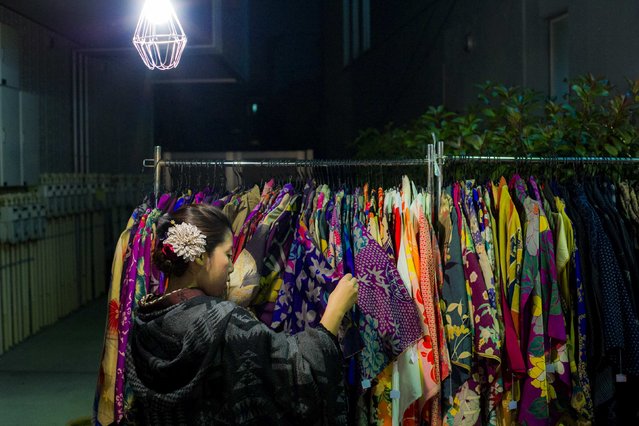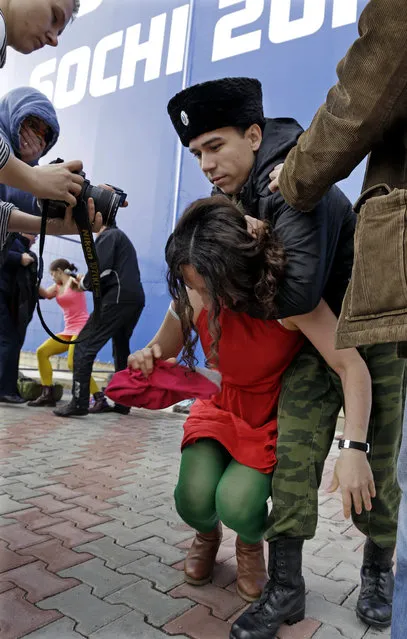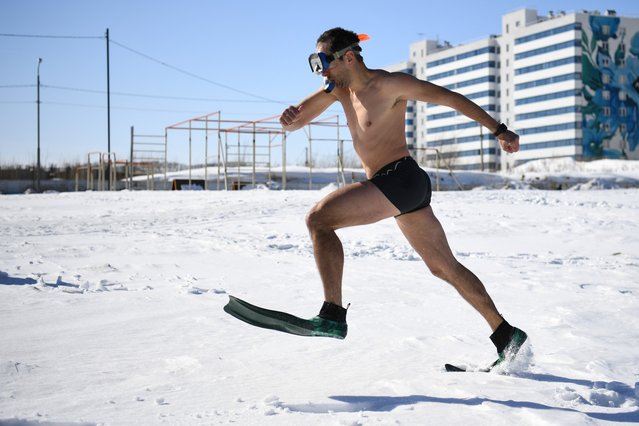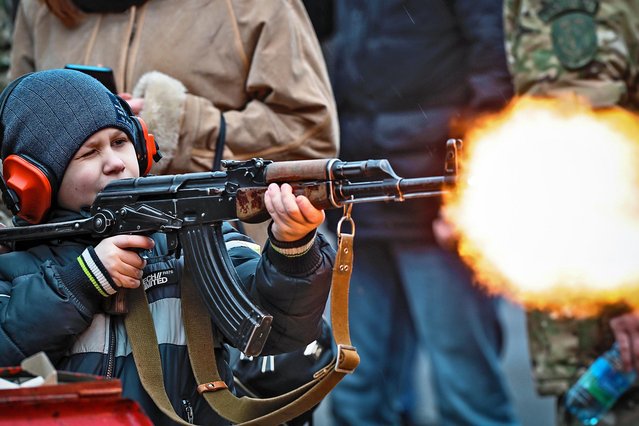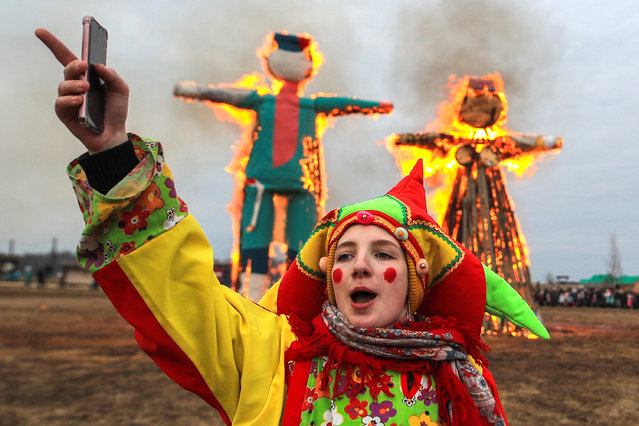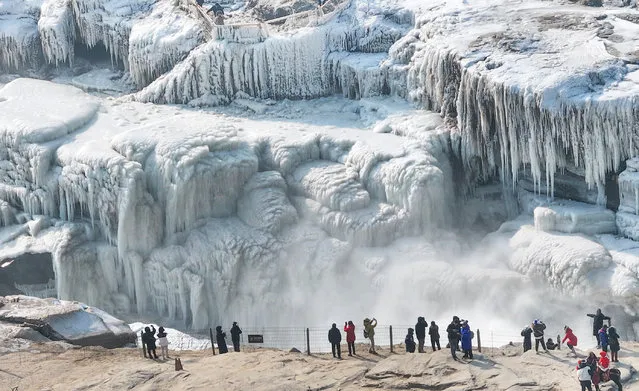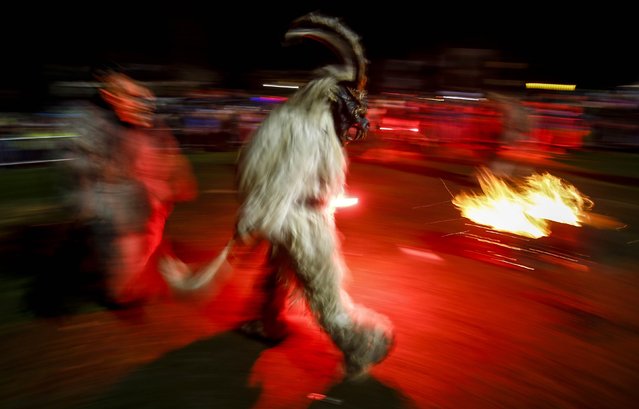
A man dressed in a traditional Perchten costume and mask performs during a Perchten festival in the western Austrian village of Huben November 22, 2014. Each year in November and January people in the western Austria regions dress up in Perchten (also known in some regions as Krampus or Tuifl) costumes and parade through the streets to perform a 1,500 year-old pagan ritual to disperse the ghosts of winter. (Photo by Dominic Ebenbichler/Reuters)
24 Nov 2014 13:50:00,post received
0 comments


